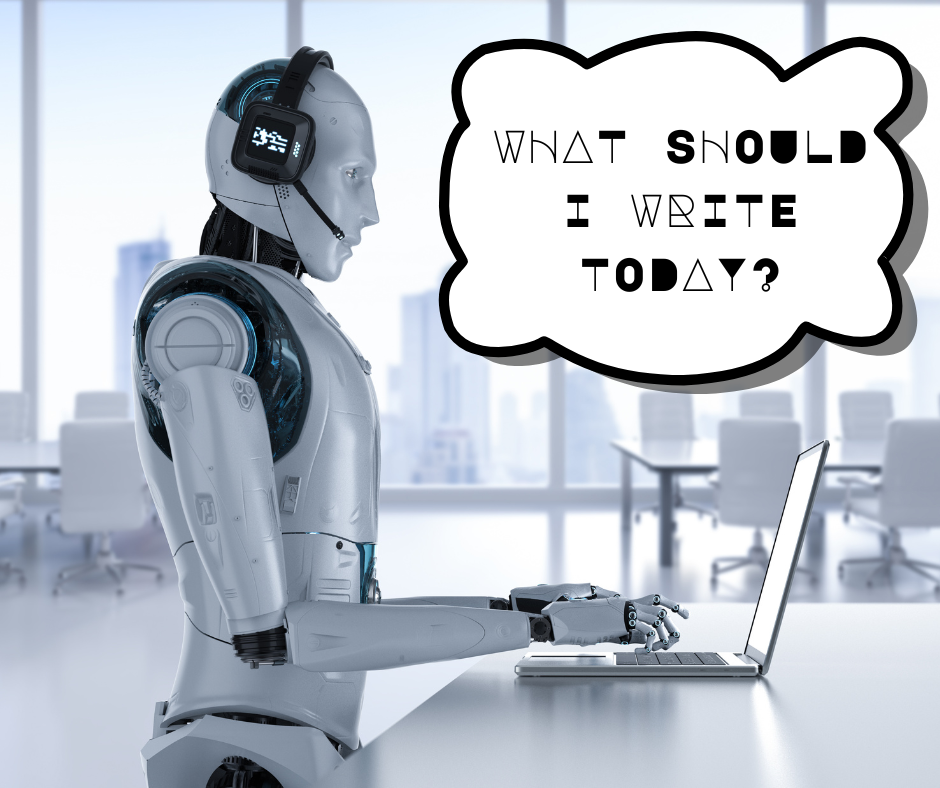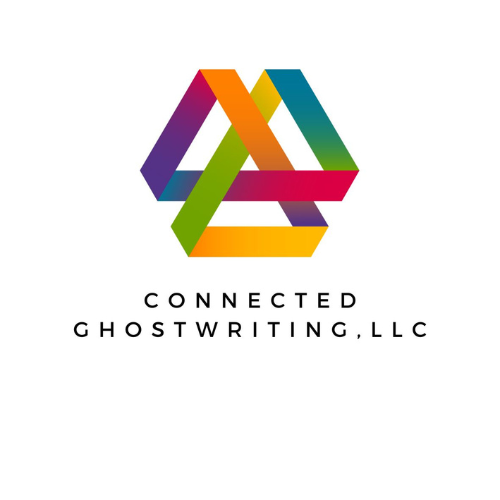Would-be-authors have a new problem. In a world where AI-generated books are multiplying faster than the stinging nettle plants taking over my garden, how do you stand out?
Platforms like Kindle Direct Publishing are awash with titles created by large language models like ChatGPT and MidJourney. Their authors hope for cheap and easy content creation. But as one client of mine discovered, the use of AI isn’t always the shortcut it seems.

The AI Shortcut That Wasn’t
Take Linda, for example (not her real name, we have NDAs). Linda, an ambitious entrepreneur, had a plan: use generative AI to produce a draft of her first non-fiction book and save on upfront costs. She thought, “Why spend months on my creative process when AI tools like ChatGPT can handle it?” Armed with the best AI she could find, and an online course that promised her the AI book would be a hit, Linda hit the ground running.
When she brought her draft to my editor, Sue Toth and me, she expected we’d simply smooth out the edges. But as soon as we opened the file, the functionality of AI writing became clear—it could generate words, sure, but not the heart or nuance that make a book resonate.
What Went Wrong?
- AI-generated content lacks nuance: The draft read like a poorly programmed chatbot, churning out clichés and awkward phrasing. Linda’s unique story and insights were buried under generic, low-quality text.
- Emotional connection was missing: Readers want to feel something when they read a book. Even when we’re talking about a business book, good story-telling provides an emotional connection that keeps your reader engaged and keeps the book from feeling like the textbook you couldn’t wait to rip the paper-bag cover off of at the end of your senior year.
- Editing became rewriting: Sue put it bluntly: “We’d spend less time just writing this from scratch.” Reworking the AI-generated content to reflect Linda’s voice required a complete overhaul.
I’ve had other clients come to me with an AI-generated pile of papers they paid other ghostwriters to “write” for them. Each time, the “edit” required is really a rewriting of every single sentence. Can I do it? Yes. Is it faster and, therefore, less expensive than hiring me to write the book in the first place? No.
Sue and I have deemed these edits “Humanizing Edits,” and frankly, they’re expensive enough that you’d be better off just hiring us to handle your book from the beginning.
The Flood of AI-Generated Books on Amazon
Linda’s story isn’t unique. Platforms like Amazon and Kindle have become incubators for AI-generated books, thanks to tools like OpenAI’s GPT and MidJourney. While the functionality of these AI models is impressive, the results are often underwhelming.
- AI writing is on the rise: New books are being published faster than ever, with some estimates showing hundreds of AI-generated books added to Amazon monthly.
- Readers notice the difference: Readers have become adept at spotting the difference between a book that connects emotionally and one that simply regurgitates information. Here’s what sets authentically written books apart:
Why Authentically Written Books Carry More Weight
What sets human creativity apart? It’s the ability to infuse stories with depth, emotion, and connection. Linda’s initial draft lacked these crucial elements. Once we started from scratch, focusing on her creative process, her voice finally came through.
- Human stories connect: Readers value authenticity. Linda’s story had the potential to inspire, but the algorithm behind her draft didn’t understand the nuances of her journey.
- Trust matters: Readers are growing skeptical of AI-generated books. A real, human touch gives your book credibility and sets it apart in a crowded market.
- Emotional Depth: Readers crave stories that make them feel something—whether it’s inspiration, joy, empathy, or even a good laugh. AI can mimic language patterns, but it can’t replicate the raw humanity that resonates with readers on a personal level. Imagine Rosie from The Jetsons trying to write a self-help book.
- Voice and Authenticity: Every writer has a unique voice, shaped by their experiences, perspectives, and insights. I recently wrote a book with a business owner who added a story that was so personally embarrassing she knew she had to tell it to connect with her audience. AI-generated books often sound generic, like they were written by a committee rather than a single, passionate individual with embarrassing stories to tell.
- Originality: AI writing tools rely on datasets from existing content, which can result in formulaic and predictable output (and plagiarism). Human authors bring fresh ideas, creative twists, and unexpected turns that keep readers engaged.
There’s a Silver Lining: You Still Have Your Human Edge
Linda’s experience serves as a reminder: AI-assisted writing might be tempting, but it’s no replacement for authentic storytelling. Here’s how to stand out in a market flooded with AI-generated content:
- Emphasize your creative process: Share the real effort behind your book. Talk about the late nights, the inspiration, and even the struggles. Readers love seeing how the magic happens.
- Use social media: Platforms like Instagram and TikTok are perfect for sharing the human side of your journey.
- Focus on quality: Invest in high-quality writing, editing, and formatting. AI tools might help with brainstorming, but only a human can create a work that feels alive.
The Challenges of Editing AI-Generated Content
Working with Linda’s draft taught us a valuable lesson: rewriting an AI-generated book often takes more time and effort than starting from scratch. Here’s why:
- Plagiarism concerns: Many AI models rely on massive datasets, which can lead to unintended copyright issues. This is a minefield in the world of self-publishing.
- Time-intensive edits: Fixing the stilted prose and repetition common in AI writing is painstaking work. It’s like trying to turn a canned soup into a gourmet meal.
- Reader skepticism: The influx of AI-generated content has made readers more discerning. Your book needs to prove it’s worth their time.
The Future of Authentically Written Books
Despite the rise of generative AI, there’s hope for human authors. In fact, the value of authentic, human-created creative work is only increasing.
- Merging technology and creativity: While AI tools like OpenAI’s GPT can assist with tasks like brainstorming, the final product needs a human touch. Linda’s success came from blending innovation with her personal story.
- Case studies of success: Look at bestsellers like Colleen Hoover. Their ability to connect with readers through deeply human stories keeps them on top of the fiction charts. Nonfiction readers want the same storytelling power.
- Audiobooks thrive on human connection: Authentic voices matter not only in print but also in audio. A real narrator sharing a real story resonates far more than an AI-generated alternative.
Authenticity Is Your Superpower
Linda’s experience taught her—and us—a valuable lesson: while AI tools like ChatGPT can help, there’s no substitute for genuine storytelling. In a market flooded with AI-generated books, your voice is what makes your work stand out.
If you’re tempted by shortcuts, remember: your readers want more than just words on a page. They want you. Invest in authenticity, craft a book that’s truly yours, and show the world that human creativity is irreplaceable. If you’re ready to write your authentically created book download our Thought Leadership 101 guide today to learn more about how we write and edit books that don’t just get finished, they get noticed.


